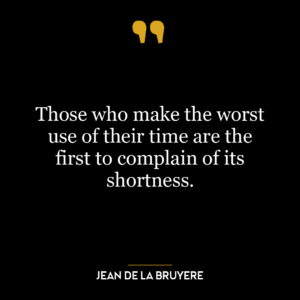This quote suggests that time has a transformative power over our perception of people. In the beginning, it is time that helps build a person’s reputation. Over time, as individuals make their mark in the world, their strengths and achievements become more recognized and appreciated, leading to the establishment of their reputation.
However, the second part of the quote introduces a paradoxical twist. It implies that as more time passes, even a person’s flaws or defects become accepted, even respected. This could be because over time, people become more understanding and accepting of the fact that no one is perfect. They come to see these defects as part of the person’s unique character, which has stood the test of time.
Alternatively, it could also mean that over time, people’s memory of a person’s flaws fades, while their achievements and positive qualities remain prominent. As such, their defects become less significant, even negligible, and thus ‘respectable’ in a sense.
Applying this to today’s world, one could say that our society often places too much emphasis on immediate impressions and quick judgments. We tend to judge people based on their current actions without considering the time factor. This quote, however, reminds us that time can alter our perceptions, making us more forgiving and understanding of people’s flaws.
In terms of personal development, this quote could be seen as an encouragement to be patient with ourselves. We should remember that our reputation is built over time and that our mistakes or defects do not define us. Instead, they are part of our unique journey and character. Over time, as we continue to grow and achieve, these flaws may become less noticeable or even respected as signs of our resilience and determination.















